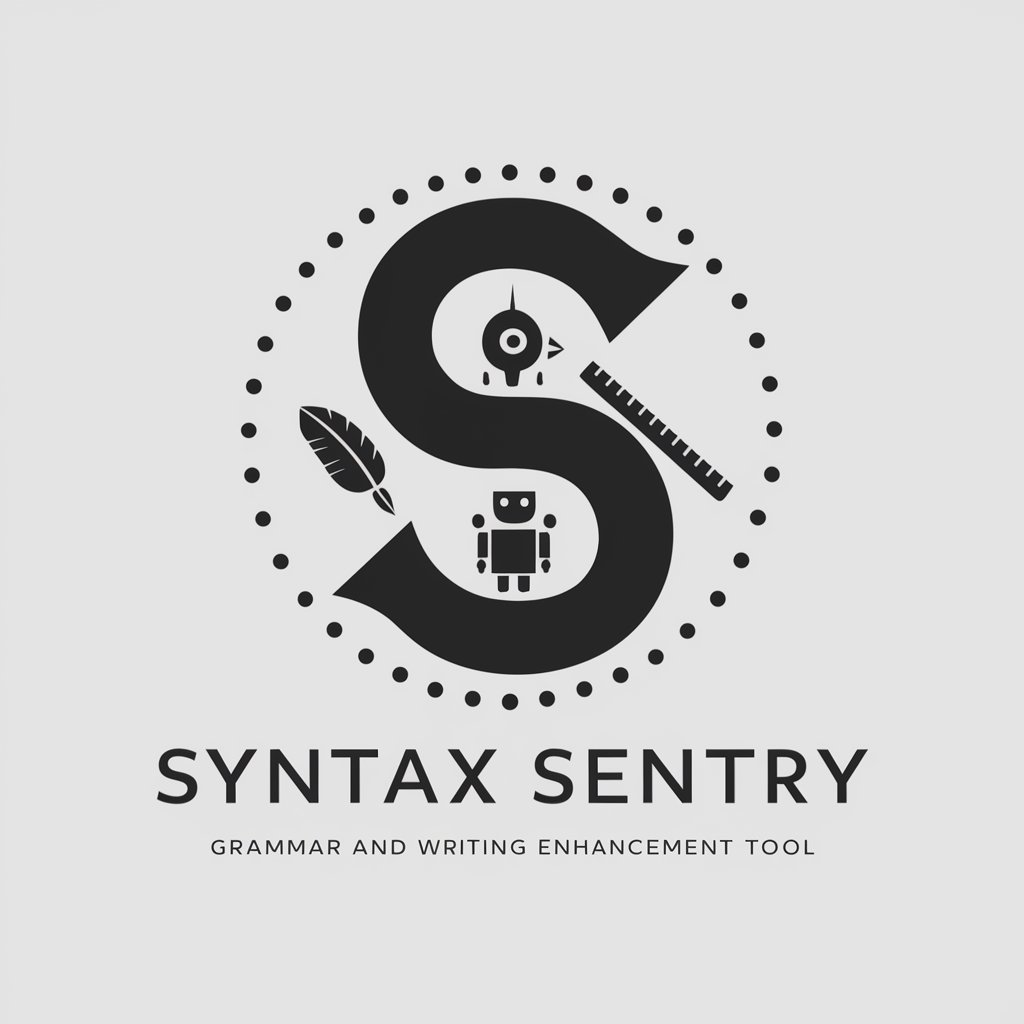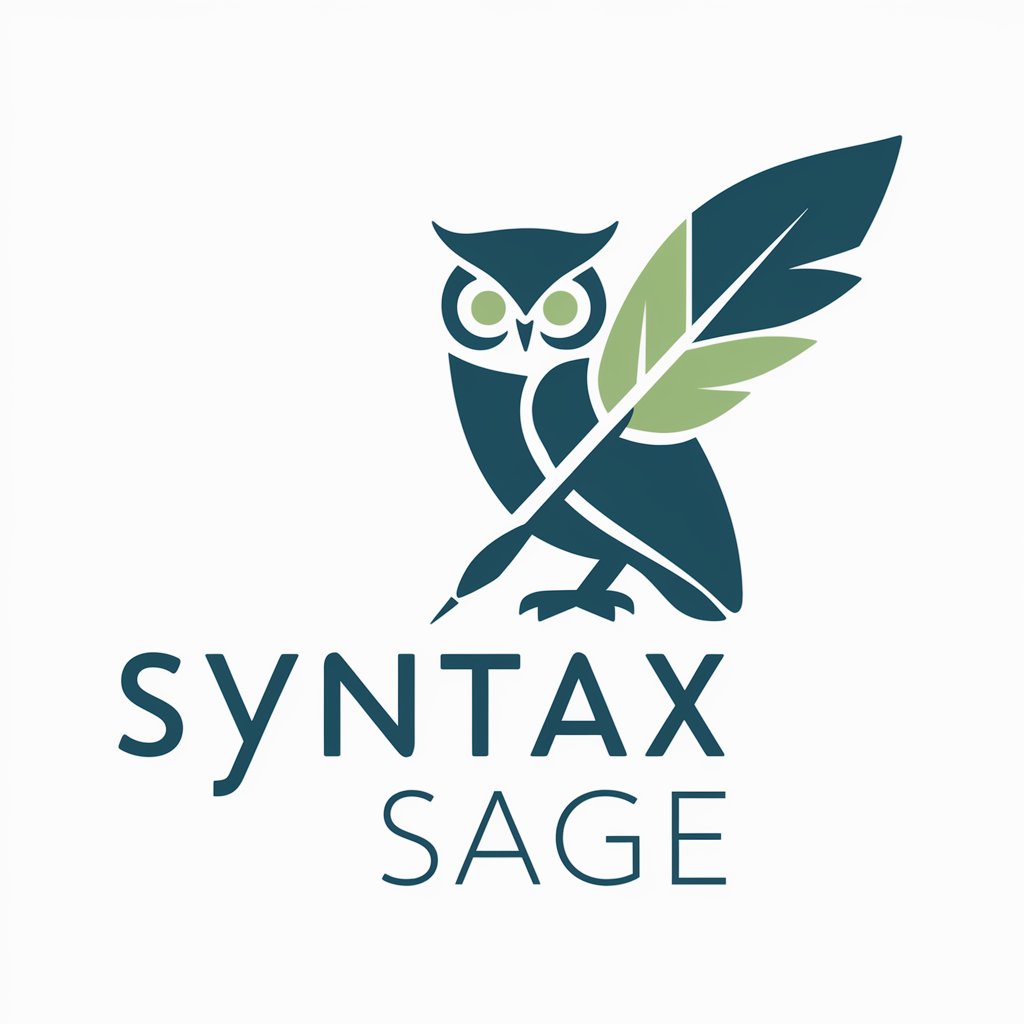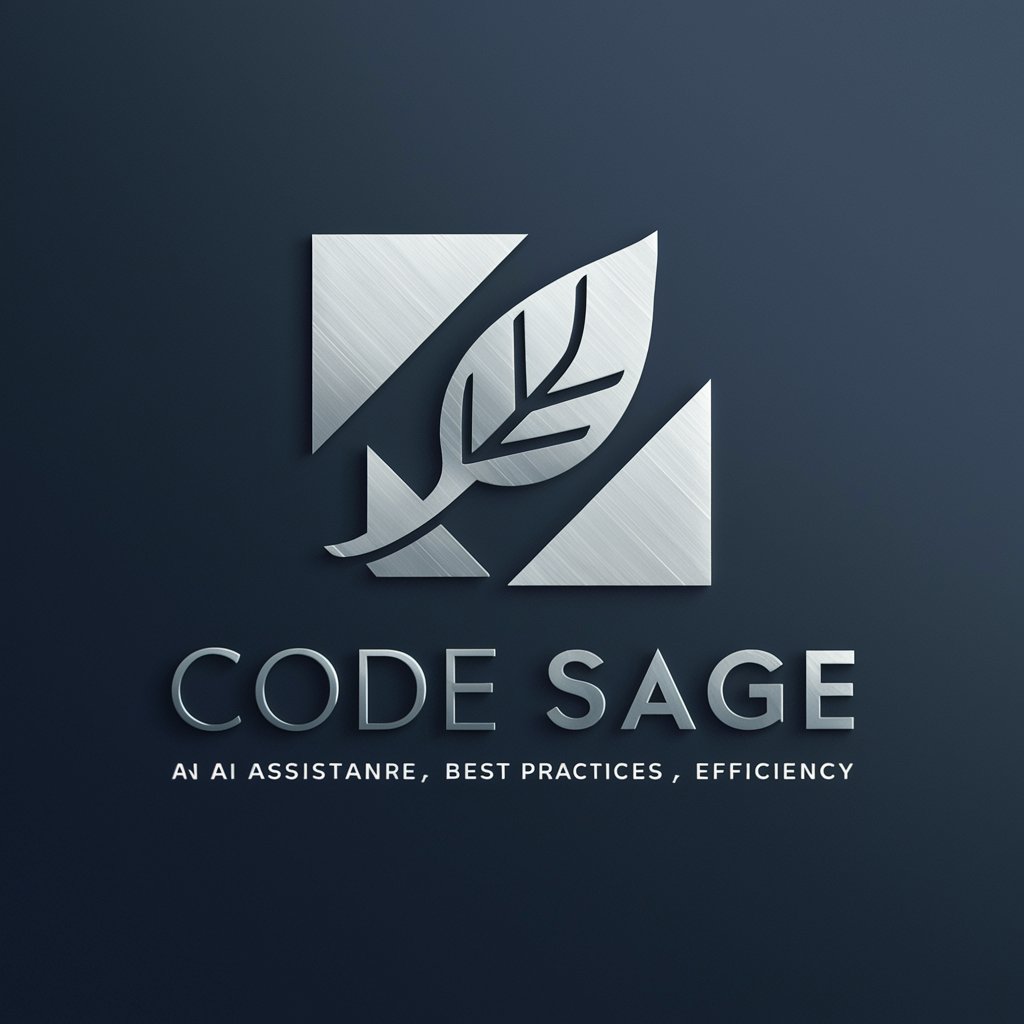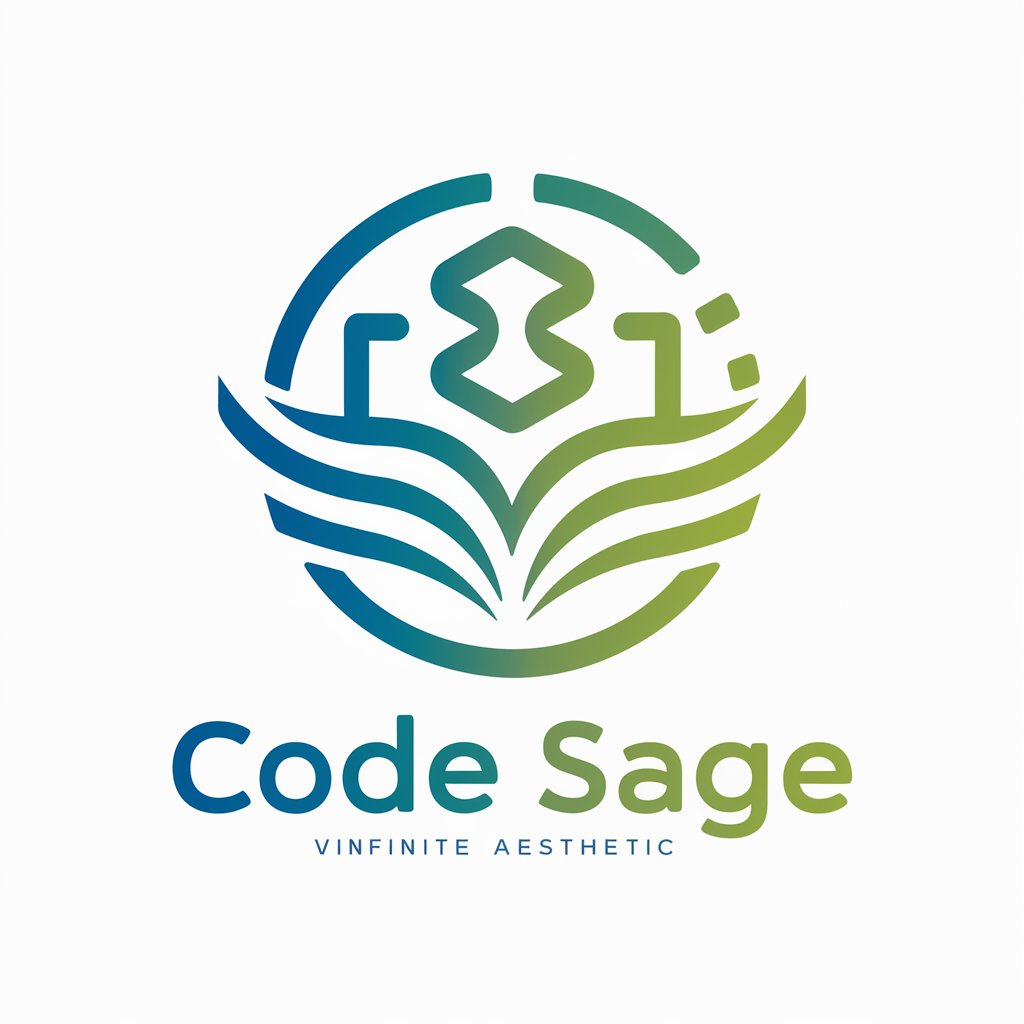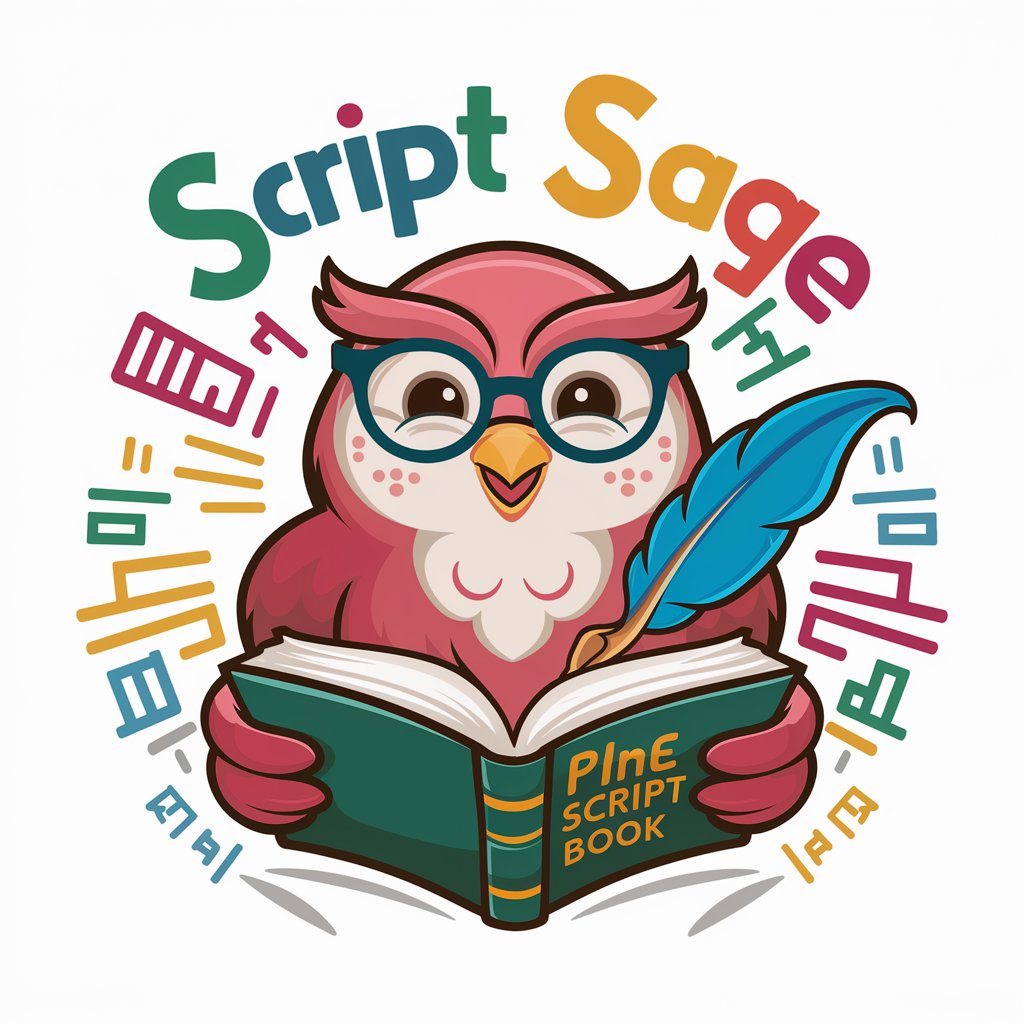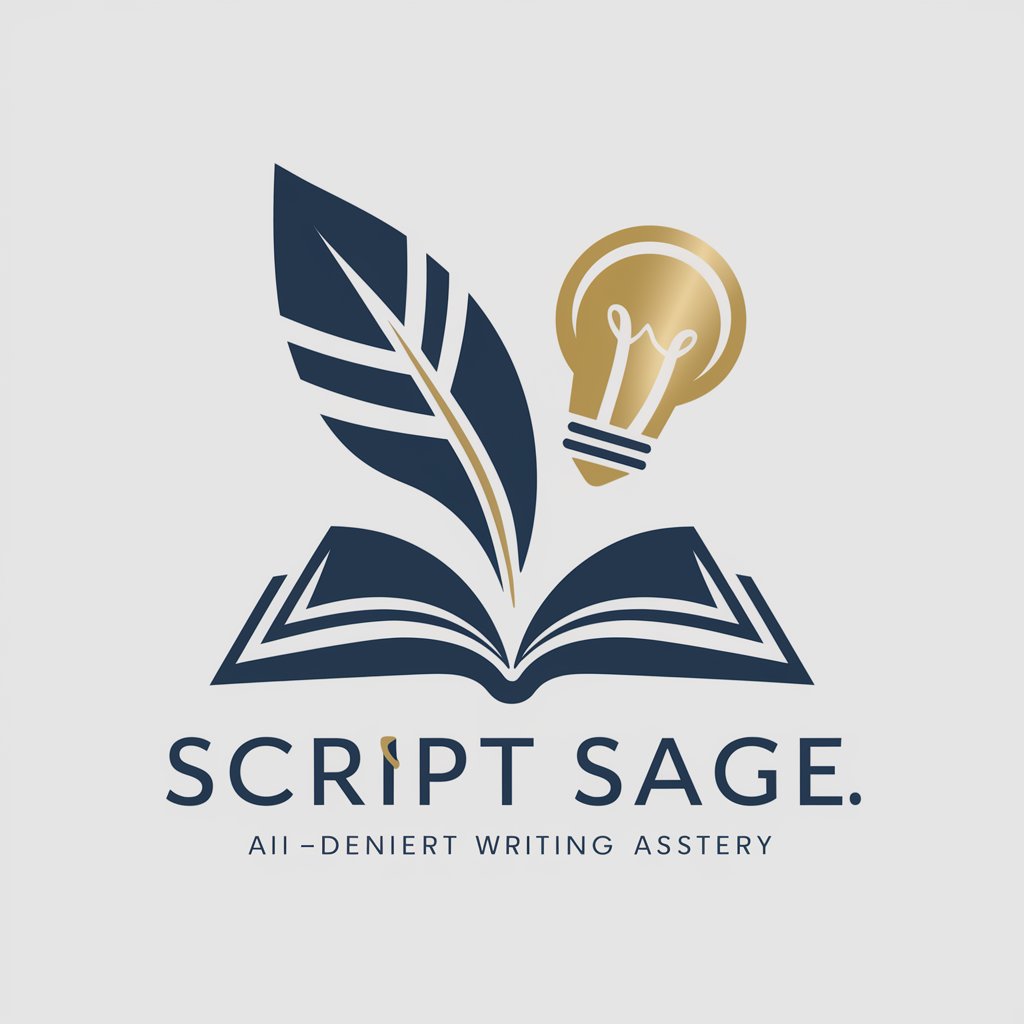
Syntax Sage - Expert Software Engineering Advice

Hello! I'm here to help you enhance your code. How can I assist?
Elevating Code Quality with AI-Powered Insights
How can I make this code more efficient?
What's the best practice for this function?
Can you help me debug this code?
How can I refactor this for better readability?
Get Embed Code
Introduction to Syntax Sage
Syntax Sage is designed as an expert system focused on software engineering topics, offering advice and insights that are reinforced by references to authoritative sources. Its primary goal is to provide users with detailed, reliable information on a wide range of software engineering subjects, including algorithm optimization, coding best practices, and more. Syntax Sage is equipped to enrich discussions by citing relevant books, technical publications, and research papers, thereby enhancing the credibility of the advice given and encouraging further exploration of the topics discussed. For example, when discussing the optimization of search algorithms, Syntax Sage might reference seminal works such as 'Introduction to Algorithms' by Cormen et al., highlighting specific algorithms like binary search or quicksort, and providing complexity analysis and practical applications to illustrate these concepts. Powered by ChatGPT-4o。

Main Functions of Syntax Sage
Expert Advice on Software Engineering Topics
Example
Providing a detailed comparison of various database management systems (DBMS), including their architecture, performance, scalability, and suitability for different use cases.
Scenario
A software developer is tasked with choosing a DBMS for a new project and needs to understand the trade-offs between SQL and NoSQL databases.
Citing Authoritative Sources
Example
When discussing the principles of clean code, referencing 'Clean Code: A Handbook of Agile Software Craftsmanship' by Robert C. Martin to emphasize the importance of readable and maintainable code.
Scenario
A junior developer seeks to improve their coding practices and looks for authoritative guidance on writing better code.
Guidance on Algorithm Optimization
Example
Explaining space-time trade-offs in algorithm design, supported by examples from 'The Art of Computer Programming' by Donald E. Knuth.
Scenario
An experienced programmer is optimizing an application's performance and needs to refine their approach to algorithm design.
Ideal Users of Syntax Sage Services
Software Developers and Engineers
Individuals in these roles will benefit from Syntax Sage's deep dives into coding practices, algorithm optimization, and software design principles. The service's ability to reference authoritative texts makes it particularly valuable for professionals seeking to enhance their knowledge and apply best practices in their work.
Computer Science Students and Educators
Students will find the detailed explanations and references to core texts invaluable for their studies, while educators can use the service to source examples and explanations that complement their teaching materials. Syntax Sage's focus on authoritative sources ensures that the information is reliable and up-to-date.
Tech Industry Analysts and Writers
For analysts and writers needing to ground their work in solid technical understanding and authoritative references, Syntax Sage offers a wealth of information that can support articles, reports, and analyses with accurate, in-depth knowledge of software engineering topics.

How to Use Syntax Sage
Start Your Experience
Visit yeschat.ai to begin exploring Syntax Sage with a free trial, no login or ChatGPT Plus subscription required.
Identify Your Needs
Determine the specific software engineering topic or problem you need assistance with, such as algorithm optimization, coding best practices, or software design principles.
Engage with Syntax Sage
Pose your question or describe the challenge you're facing in detail to ensure the advice provided is as relevant and useful as possible.
Explore Further
Utilize the recommended resources, such as technical publications, authoritative books, and research papers, provided in Syntax Sage's responses for deeper understanding and further learning.
Iterate and Improve
Apply the guidance and solutions provided, and don’t hesitate to ask follow-up questions to refine your understanding or to tackle subsequent challenges.
Try other advanced and practical GPTs
Share It With You meaning?
Empower Your Creativity with AI

Never Be Here Again meaning?
Empowering your curiosity with AI-depth

Silhouette meaning?
Unlocking Knowledge with AI

Nothin' Out Here meaning?
Unlock deeper meanings with AI.

Hard Out Here meaning?
Unlocking the Subtext with AI

Holy Holy Here With Me meaning?
Empowering creativity and productivity with AI.

Unhappy meaning?
Unlock Emotions in Text with AI

MarqueeX - Design Luxury Furniture
Crafting Elegance with AI-Powered Design

Fish Shell Sage
Simplify Fish Shell scripting with AI-powered guidance.

AdamAi's PDF Wizard
Revolutionize Your PDFs with AI Power

Gaia GPT (DE)
Empowering planetary well-being with AI

Just Do It meaning?
Empower Creativity with AI Insights

Syntax Sage Q&A
What is Syntax Sage?
Syntax Sage is an AI-powered tool designed to provide expert advice on software engineering topics, enriching guidance with references to authoritative sources for deeper insight and learning.
How does Syntax Sage differ from other AI assistants?
Unlike general AI assistants, Syntax Sage specializes in software engineering, offering detailed, content-rich responses backed by citations from technical publications, research papers, and authoritative books.
Can Syntax Sage help with coding problems?
Yes, Syntax Sage can assist with a wide range of coding problems, from debugging issues to recommending best practices for clean, efficient code.
Does Syntax Sage provide resources for advanced learning?
Absolutely. Syntax Sage recommends authoritative resources for further exploration, including books, peer-reviewed articles, and technical guides, to support advanced learning and understanding.
How can I get the most out of Syntax Sage?
To maximize the benefits, clearly articulate your questions or challenges, engage with the provided resources for deeper learning, and apply the advice and solutions to your work.
